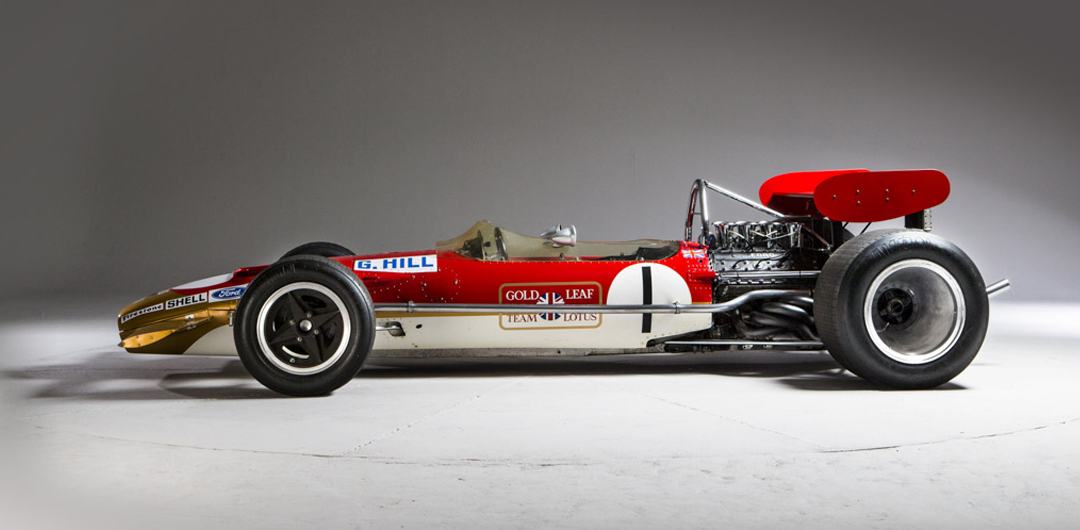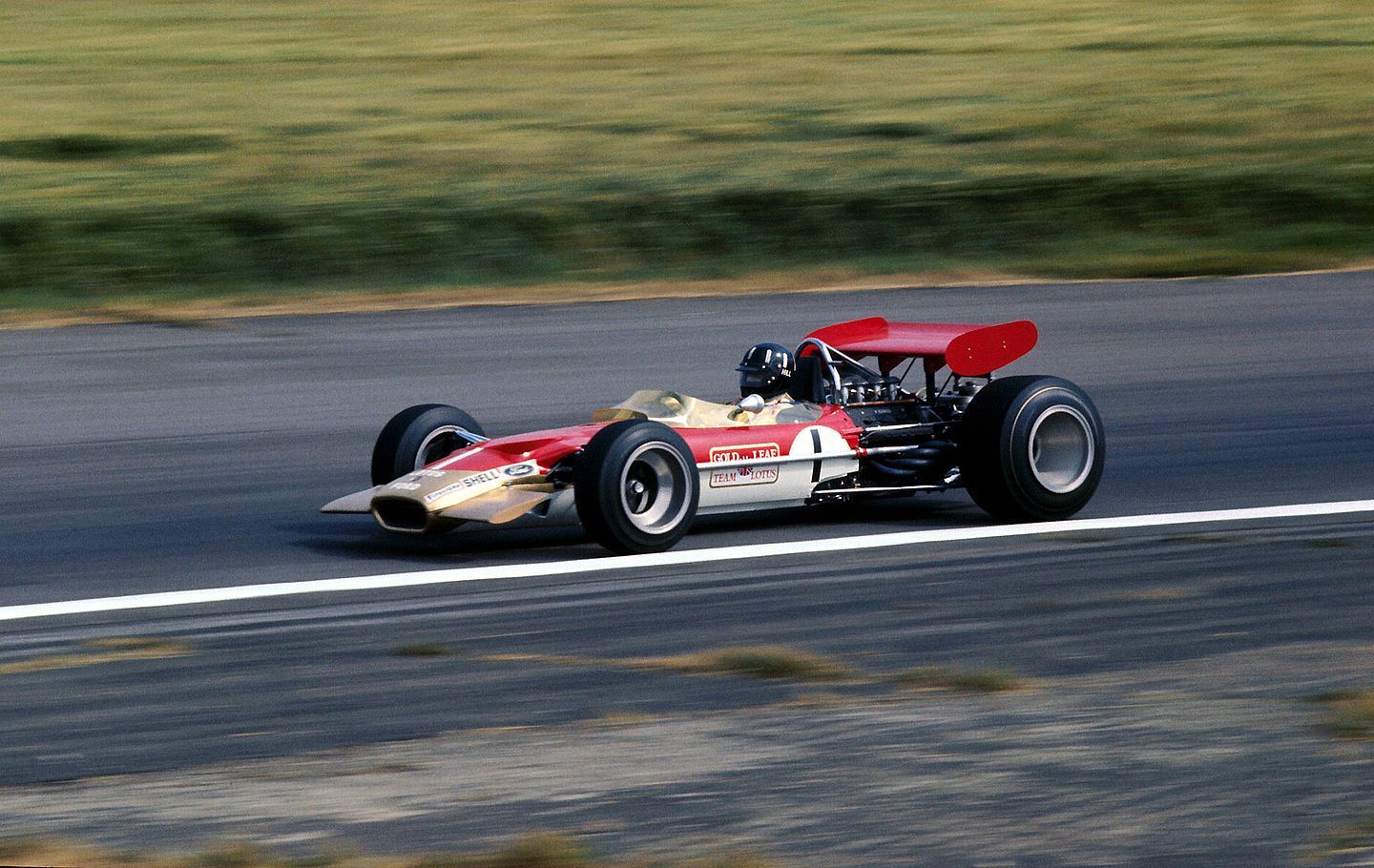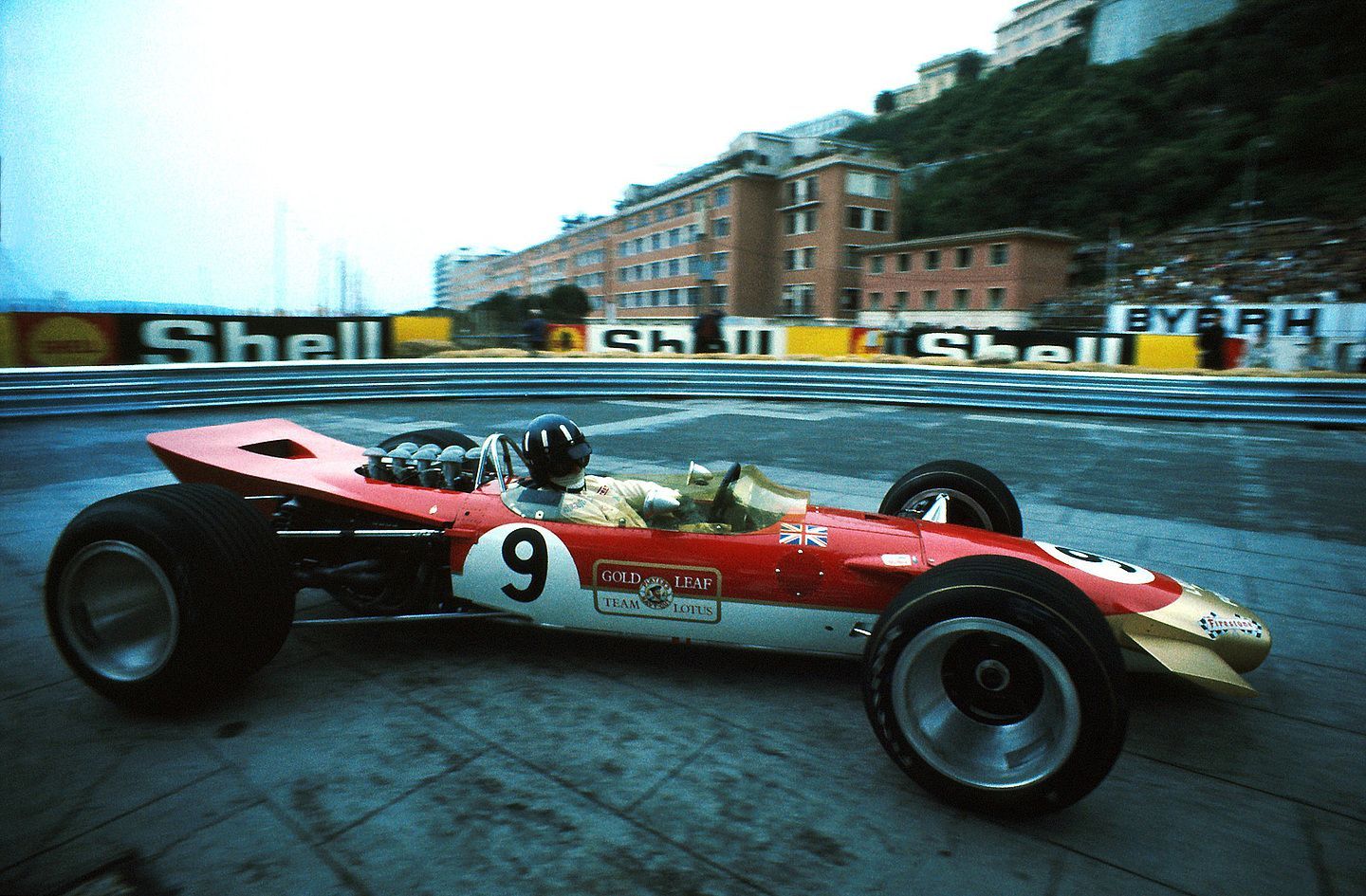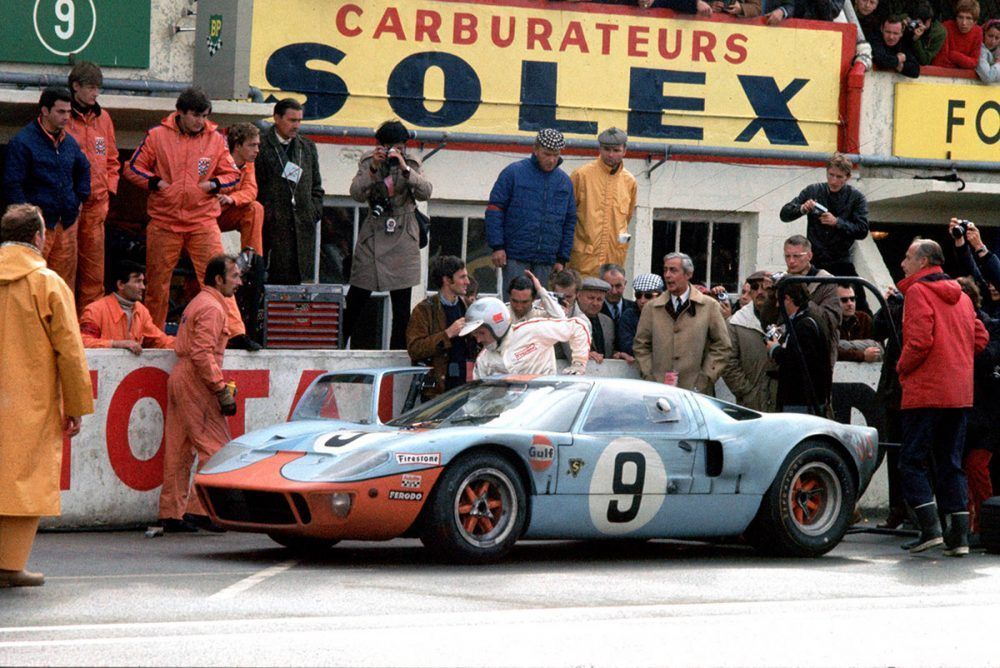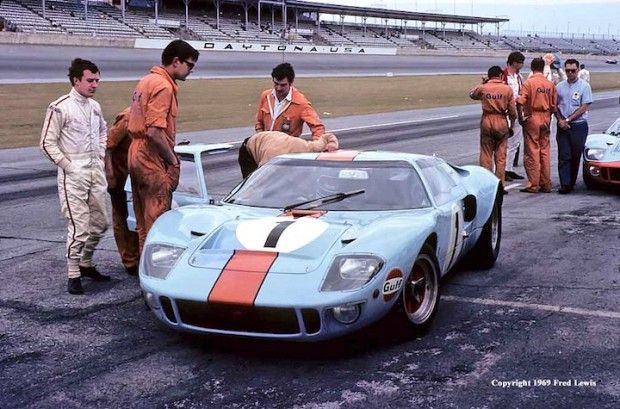HOW LIVERIES REVOLUTIONIZED MOTORSPORT IN THE 1960s
THE FIRST-EVER COMMERCIAL RACE LIVERY
The 1960s was a transformative decade for motorsport, marked by a revolutionary change: the introduction of commercial sponsorships. Before this era, cars were usually painted in national racing colors, representing the country they raced for. However, in 1968, this changed with the debut of the first-ever commercial race livery: the Gold Leaf sponsored Lotus.
Painted in the striking red, white and gold colours of its Tobacco sponsor, the Gold Leaf Lotus opened the doors for brands to use racing as a promotional platform. Which resulted in the start of a business revolution in motorsport. Sponsorships enabled teams to secure much-needed funding, and allowing them to invest in better technology, engineering, and talent. Soon other brands followed, creating many more iconic liveries as we know them today.
One of which being the iconic
Gulf Livery. Introduced in the late 1960s, this sky-blue and orange design gained worldwide fame when the Ford GT40, under Gulf Oil sponsorship, secured back-to-back victories at the 24 Hours of Le Mans in 1968 and 1969. The GT40 was already known for its victories in the 1966 and 1967 edition of the 24 Hours of Le Mans. But it became a true legend with the Gulf Oils branding, capturing the essence of speed, endurance, and style. This combination of color and car left a lasting impression, with many more Gulf Liveries that followed.

